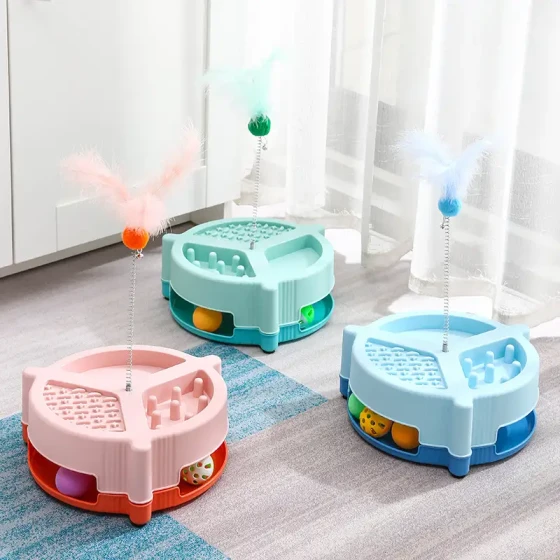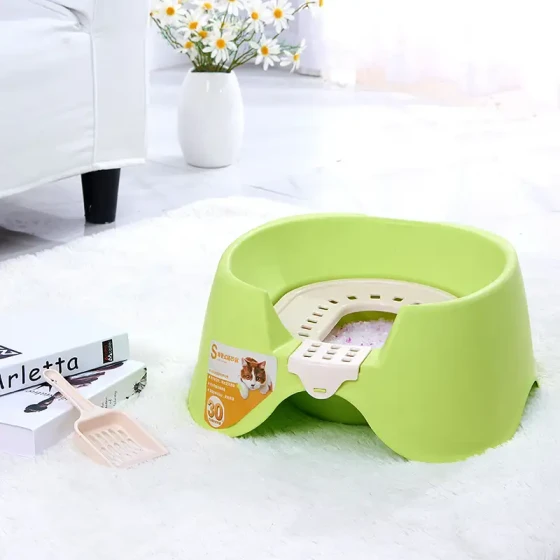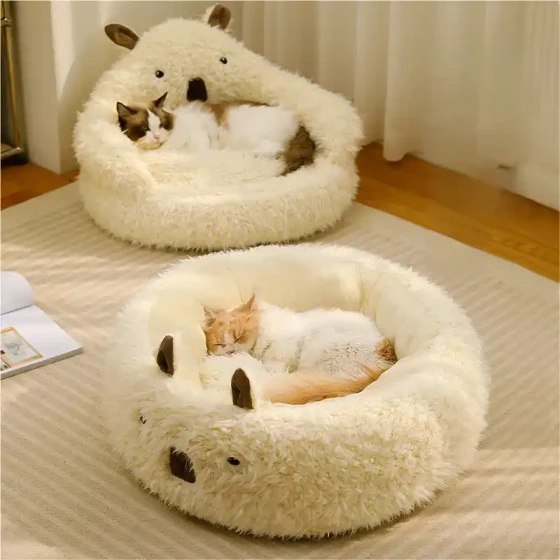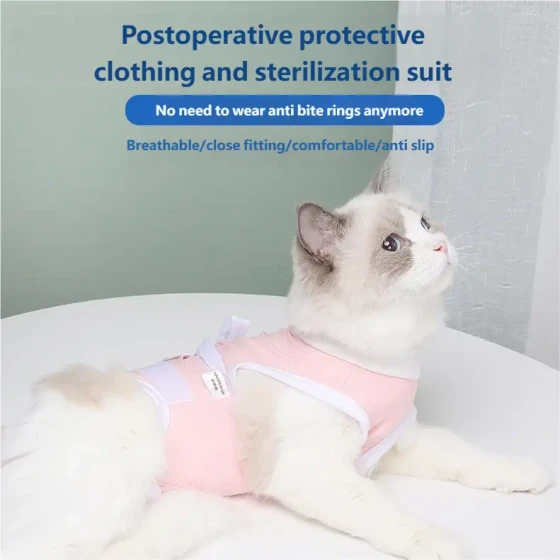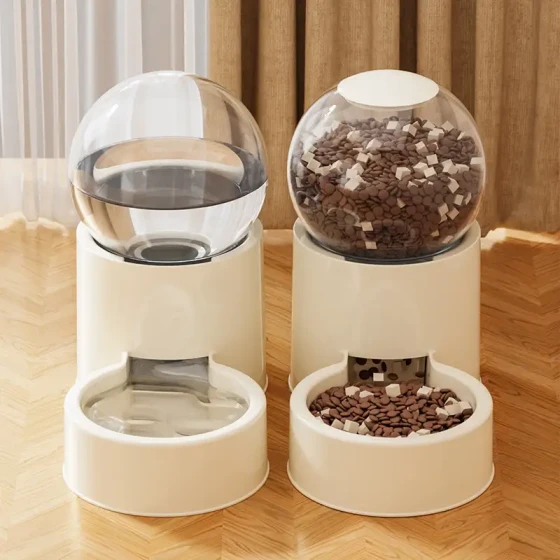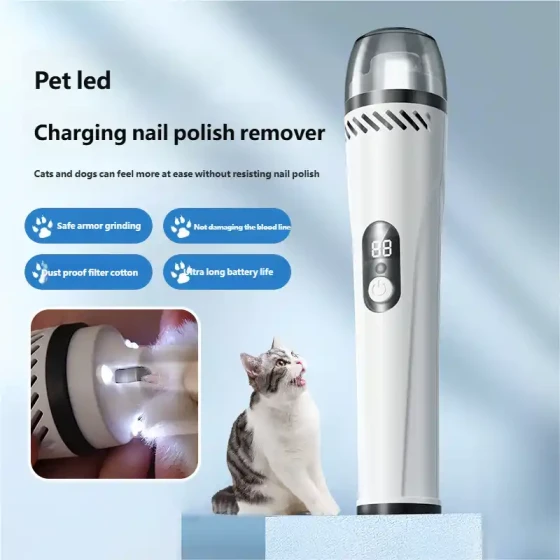Are Ragdoll Cats Prone to Illness_Complete Analysis of Ragdoll Cat Health Care Hotly Discussed on Zhihu
Keeping a Ragdoll cat is a dream for many cat lovers. They have a doll-like beautiful appearance and a gentle, affectionate personality, truly a combination of “walking cash” and “adorable little troublemaker.” However, like all purebred cats, Ragdolls do have some health issues that owners need to pay special attention to. Discussions on Zhihu about Ragdoll cat health care have been very enthusiastic, after all, who doesn’t want their furry child to accompany them healthily and happily for a longer time? Overall, Ragdolls do have susceptibility to certain hereditary diseases, but this does not mean they are necessarily prone to illness; scientific care and regular check-ups are the keys to ensuring their health.
Common Health Challenges of Ragdoll Cats: Know Your Enemy for Certain Victory
As an artificially bred breed, although Ragdolls are extremely attractive, their genetic diversity is relatively low, making them more susceptible to certain hereditary diseases. Understanding these potential health risks is as important as checking a game guide before playing, as it helps us better prevent and cope with them.
-
Hypertrophic Cardiomyopathy (HCM): The “Invisible Killer” of Cat Hearts
Hypertrophic cardiomyopathy is the most common hereditary heart disease in Ragdolls. Simply put, it is an abnormal thickening of the cat's heart muscle wall, causing the heart to not function properly and significantly reducing its pumping ability. Imagine a heart originally like a spacious “blood pump room,” but the walls thicken more and more, reducing the space so that blood can’t be pumped effectively. This disease may show no obvious symptoms in the early stages, and many owners might not notice it until the condition progresses, with the cat possibly exhibiting breathing difficulties, reduced activity, loss of appetite, sudden collapse, or in severe cases, thrombosis or sudden death, which is heartbreaking.
Fortunately, with current DNA genetic screening technology, responsible breeders test cats before breeding to reduce hereditary risk. If your Ragdoll is unfortunately diagnosed with HCM, don’t lose hope; veterinarians will prescribe medication based on the condition to help control it and improve heart muscle function. Regular cardiac ultrasound check-ups are like health exams for the heart and aid in early detection.
-
Polycystic Kidney Disease (PKD): “Small Water Bubbles” in the Kidneys
Polycystic kidney disease is another common hereditary disease in Ragdolls caused by gene mutation. This disease causes many small cysts to form in the kidneys, like countless “small water bubbles.” These cysts gradually enlarge over time, compressing normal kidney tissue and ultimately impairing kidney function, leading to kidney failure. Affected cats may exhibit symptoms like increased drinking and urination, loss of appetite, and weight loss. Although some kittens as young as six months can have microcysts detected by ultrasound, symptoms of kidney failure usually appear around three to ten years of age, averaging about seven years.
Similarly, genetic testing can help screen cats carrying the PKD gene to prevent them from breeding. For cats already affected, although there is no cure, a low-phosphorus, high-moisture diet can reduce kidney burden and slow disease progression. Regular kidney ultrasound is also essential.
-
Feline Lower Urinary Tract Disease (FLUTD): The Trouble of “Not Being Able to Pee”
Ragdolls also seem relatively prone to lower urinary tract diseases, such as cystitis and urinary stones. Imagine the cat’s urinary system as the house’s drainage. If it gets blocked or inflamed, urination becomes difficult. Affected cats may frequently run to the litter box but can’t urinate, have blood in urine, or exhibit severe pain.
To prevent this “urine” trouble, first ensure the cat drinks plenty of water; using a flowing water fountain can attract them to drink more. Choosing cat food specially formulated for urinary health is also a good option. If you notice abnormal urination, don’t delay—take your cat to the vet promptly for early treatment and relief.
-
Obesity and Joint Problems: Sweet Burdens
Ragdolls have a gentle temperament and are not very active. Coupled with their large size, if diet management is neglected, they can easily become “plus size” adorable chubby cats. Obesity is no joke; it places extra burden on the heart, kidneys, and joints of cats—like making a heavy person run a marathon, which is exhausting. Especially as they age, excess weight easily causes arthritis and mobility difficulties.
Controlling a Ragdoll’s weight is key to preventing obesity and joint problems. Provide them with high-quality cat food, control feeding portions, and don’t let them eat freely. Spend time daily to play with them, doing gentle exercises like playing with wand toys or chasing small balls; keeping them active is also important. If older cats develop joint problems, consult a veterinarian for pain management.
-
Hairball Disease: Little Troubles in the Belly
Ragdolls have beautiful long fur and like to groom themselves by licking, which causes them to swallow a lot of hair. Most of the time, the hair passes smoothly through the digestive tract, but sometimes it accumulates into clumps forming hairballs that obstruct intestines, causing vomiting, abdominal pain, constipation, and other digestive symptoms. While other long-haired cats also face this issue, Ragdolls may be more prone due to genetic factors making their intestinal valves more susceptible to problems.
The best way to prevent hairball disease is frequent brushing! Spending a few minutes daily grooming your Ragdoll can effectively reduce the amount of hair swallowed and also enhance your bond—a win-win. Special hairball control cat food or hairball paste can help them pass hairballs.
-
Sensitive Digestive System: The Trouble of a “Glass Stomach”
Many owners report that Ragdolls have relatively sensitive stomachs and intestines, easily experiencing vomiting, diarrhea, and other digestive issues, essentially having a “glass stomach.”
Therefore, choosing cat food for Ragdolls requires extra care—preferably quality food with fresh meat as the primary ingredient, easy to digest and low allergen. When changing food, use the “seven-day transition method,” gradually increasing the ratio of new food to allow the cat’s stomach to adjust and avoid discomfort caused by sudden changes. Regular probiotic supplements also help regulate gut flora and boost immunity.
-
Dental Problems: Oral Health Should Not Be Overlooked
Ragdolls are also prone to dental issues such as gingivitis or periodontal disease. Symptoms include bad breath, refusal to eat hard food, swollen or bleeding gums.
Regular tooth brushing is the most effective way to prevent dental problems and should be introduced from a young age. If the cat strongly resists tooth brushing, dental treats, dental water additives, or regular professional dental cleaning visits to the vet can be alternatives.
Besides Diseases, These Care Details Also Affect Ragdoll Cat Health
Aside from hereditary and common diseases, daily care details are equally important for a Ragdoll’s health.
- Indoor Life Is Safer: Ragdolls have a gentle nature and lack self-protection awareness, like “kids without social experience.” It’s too dangerous to let them outside! Risks include car accidents, bullying, parasite infections, or contagious diseases. Therefore, it is best to let them stay comfortably indoors, providing a safe and cozy living environment.
- Appropriate Temperature: With thick fur, Ragdolls are sensitive to heat in summer. Keep indoor temperature suitable during hot weather to avoid heatstroke. Ideal indoor temperature is about 24-28°C.
- Adequate Drinking Water: As mentioned earlier, drinking plenty of water helps prevent urinary system diseases. Always provide clean fresh water, place several water bowls around the house, or use flowing water fountains that cats prefer.
- Regular Health Check-ups: Just like humans need exams, cats also require regular veterinary visits. Routine health check-ups (usually once a year, or twice a year for senior cats) help vets detect potential problems early for timely treatment. Vaccination and internal/external parasite control must be done on schedule.
- Keep Environment Clean: A clean living environment reduces bacteria and parasites, lowering the risk of illness. Clean litter boxes daily and deep clean regularly. Food and water bowls should also be washed frequently.
- Proper Exercise and Play: Even though Ragdolls tend to be “homebodies,” they still need moderate exercise to maintain healthy weight and mental wellness. Spend time daily playing with them, provide various toys, and ensure enough activity space.
Care Philosophy Behind Zhihu’s Hot Discussions: Details Determine Health
The enthusiastic discussions on Zhihu about Ragdoll cat health reflect people’s affection for this breed and their emphasis on proper care. Many conversations focus on preventing hereditary diseases, selecting suitable food, and handling common digestive and hairball issues. People share experiences and learn from each other, hoping to provide the best care for their Ragdolls.
Experienced owners emphasize that choosing a healthy Ragdoll is the first step. They recommend selecting reputable catteries with genetic testing reports of the cat’s parents, avoiding unknown origins. In daily care, attentive owners keep records of their cat’s diet, elimination, and activity and promptly seek veterinary care if abnormalities arise. This meticulous care approach is like a custom “health management plan” for Ragdolls.
In conclusion, although Ragdolls do have specific health risks, this does not mean they are inherently fragile or sickly. By understanding these risks, choosing cats from healthy sources, providing scientific feeding, regular medical exams, and a loving environment, most Ragdolls can live healthily and happily for many years. Raising a cat is full of love and responsibility. With attentive care, you can maximize your furry child’s health protection.
Frequently Asked Questions
-
What is the average lifespan of a Ragdoll cat?
Generally, with good care, a Ragdoll cat’s average lifespan is between 12 and 17 years. Scientific feeding and regular health check-ups help them live longer. -
Are Ragdoll cats prone to obesity?
Yes, due to their inactive nature and large size, Ragdolls are one of the breeds more prone to becoming overweight. Controlling diet and providing appropriate exercise is necessary. -
Do Ragdoll cats need frequent baths?
Ragdolls groom themselves and usually do not need frequent baths unless they get very dirty. About once a month or less is sufficient. Regular brushing is more important than bathing. -
How can I tell if my Ragdoll cat is sick?
Signs of illness may include loss of appetite, lethargy, vomiting, diarrhea, abnormal breathing, difficulty urinating, or behavioral changes. If you notice any abnormalities, consult a veterinarian promptly. -
Can hereditary diseases in Ragdolls be cured?
Hereditary diseases like hypertrophic cardiomyopathy and polycystic kidney disease generally cannot be completely cured but can be managed with medication, dietary management, and regular check-ups to improve the cat’s quality of life. Prevention through genetic screening is important.
References
- Petplan: Ragdoll: Personality, Diet, Grooming, Training
- PetMD: Ragdoll Cat Breed Health and Care
- Reddit: Ragdoll health issues, breed specific or higher incidences?
- Pet Keen: Ragdoll Cat Care Guide For First Time Owners
- Stinky Cat Zoo: Major Disadvantages of Ragdolls! Common Diseases and Defects and How to Face and Solve Them!
- NetEase: Health Status and Prevention Measures of Ragdoll Cats
- Potiki Pet Insurance: Health problems in Ragdoll Cats
- PetMD: Complete Guide: Taking Care of Your Ragdoll Cat
- Untamed: The Ragdoll cat's health issues clarified
- About Catteries: Are Ragdoll Cats Prone to Illness?
- Pet Keen: The Definitive Guide to Ragdoll Cat Care
- Halo Hello: Ragdoll Personality, Features, 6 Key Care Tips at a Glance
- How to Raise a Ragdoll
- Reddit: Advice for first time ragdoll owner?
- The Governing Council of the Cat Fancy: Gene testing
- Amvet Biosciences: Ragdoll
- What’s Worth Buying: Ragdoll Cat Care Guide: From Diet to Health, Essential Details for Beginners
- Pet Check: Ragdoll Genetic Diseases
- UNITED MAINE COON FANCIERS OF AUSTRALIA: Breed Health Program
- Langford Vets: Relevant genetic diseases by breed
- Chengjiang News Network: Official Website Releases New Cat Breed Introduction and Care Guide
- Genomia: Testing of cats
- Maine Cat: Purebred Cat Genetic Diseases – CFA Cattery Breed Popular Science
- TikTok: Bode Dog Cattery
- Ragdoll Cats
- Meeting Furry Kids: Hope Every Owner Can Find Their Ideal Cat Here
- Any Type of Testing
- Yuxi Net: Regulated Online Lottery Platform Exploring Charm and Care of New Cat Breeds
- Bull Pharmaceutical: Four Points to Prevent Cats from Heat Stroke
- SofyDOG: Thought I Owned a Dog? Ragdoll Cat Care Guide
